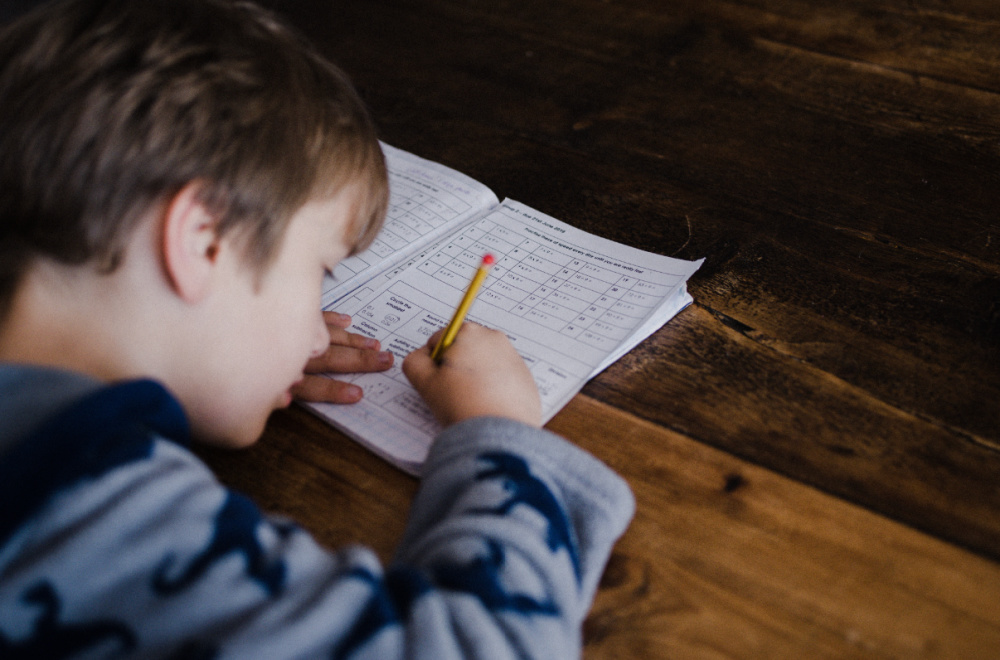The more teachers, coaches, or any important adult can help children feel safe, seen, cared for, the more those kids will feel safe enough to ask for help, take safe risks, learn, be curious, be brave, learn, grow.
The research is so clear on this. Students who genuinely feel cared for by their teachers do better at school. This is because when children feel relationally safe, the learning brain opens wide up. Without that felt sense of relational safety, the brain will focus on getting ‘safe’ rather than learning.
Brains are here to keep us safe. They aren’t here to keep us happy, for relationships, learning, play – unless that matters right now for our survival. The priority for all brains is safety. When we talk about ‘safety’, this isn’t about what is actually safe or not safe. It’s about what the brain perceives. It’s also not just about physical safety. Relational safety (feeling cared for, welcome, seen, validated, free from humiliation, shame, judgement) is just as important to the brain.
When the brain registers any form of threat, even if ‘threat’ is unlikely or teeny, it will hoard all available resources in case it needs them for survival. Only when brains feel truly safe
Any ideas that behaviour at school should be managed with separation-based discipline, shame, star charts or behaviour charts or anything that publicly ranks students (someone is always on the bottom – usually the same someones), or overly-stern voices are outdated and are not at all informed by science. Fear does not motivate. It shuts down the learning brain and makes it impossible for children to learn. It does the same to adults. It’s also why we need to steer away from suspensions and stand-downs. None of these fix the problem long term. They’re the biggest ‘you’re not welcome’ signs children can get and will only contribute to the problem long-term. Of course, none of this means ‘no boundaries’. It means building relational safety and setting and enforcing boundaries in ways that don’t tear it apart.
Unless you’re one of the ones anxious kids feel safe with, you’ll only see the tip of what they are capable of. School and learning were never meant to be about how outgoing kids are or how confident they are in initiating contact with an adult. Greatness is built bit by bit, and the foundations are strongest when it’s safe.
What parents can do.
- Know that whatever you decide, they will follow. Do you believe they are safe and loved at school? This isn’t a rhetorical question. Building relationships that feel safe and loving for children takes time. If you aren’t quite there yet, they won’t be either. What can help you feel more certain? Do you need a conversation? More information? Help to facilitate a relationship between your child and an anchor adult? Have a conversation with your child’s school. They want to be the best they can be for your child too, and you’re the one who can help that happen.
- Be the ‘glue’ that connects your child and their teacher. Whenever you can, let your child know you like and trust their teacher. To facilitate this, ask your child’s teacher to tell you something your child did well – maybe once a month or once a fortnight. Then, pass this on to your child. ‘Mrs Jones emailed me to let me know how hard you’re working in maths. I really love the way she noticed that about you.’ Or, incidental comments sprinkled around that sound something like, ‘I really like your teacher. I think you got a goodie with Mr Smith.’
What teachers can do.
- Let them know you’re their person: ‘I’m going to help you do the very best you can this year. ‘Being my best’ will mean different things to different people. I’d love to know what this means for you and how I can help. What matters most to me is that you try hard, make brave choices, be kind, and know that you can come to me any time. The more you can help me understand what you need and what doesn’t work for you, the more I can help you have a great year. I’m so pleased you’re in my class.’
- At the start of the year (or any time), ask them to write the answers to the following questions:
- What does ‘doing well this year’ look like for you?
- What might make this hard?
- How can I help?
- What are three things teachers have done for you in the past that have helped you have a good year?
- What are three things that teachers have done in the past that have made it harder?
- I wish my teacher knew …
- Build the connection. Micro-moments matter. Whenever you can (and you might not be able to do this all the time, and that’s okay), connect when they walk into the room. Let this be verbal or non-verbal. As soon as kids walk into a room, they’ll be looking to the adult in the room for, ‘Do you see me? Are you happy I’m here? Are you ready to receive me today?’ They’re looking to answer the big relational safety question: ‘Am I welcome here?’
And finally …
Good teachers change lives. They really do. So much of a young person’s experience at school isn’t about what teachers teach but about who they are. When children feel seen and safe, learning will happen. The brain will surrender safety resources and allow those resources to feed into curiosity, learning, connecting, and growing in all the vibrant ways we know they can.



This is just so affirming and so spot on… as a mumma and a teacher I know how crucial it is for children to feel safe and to connect with their teacher/ teachers at school.
Keep up the really insightful and helpful pieces, Karen.